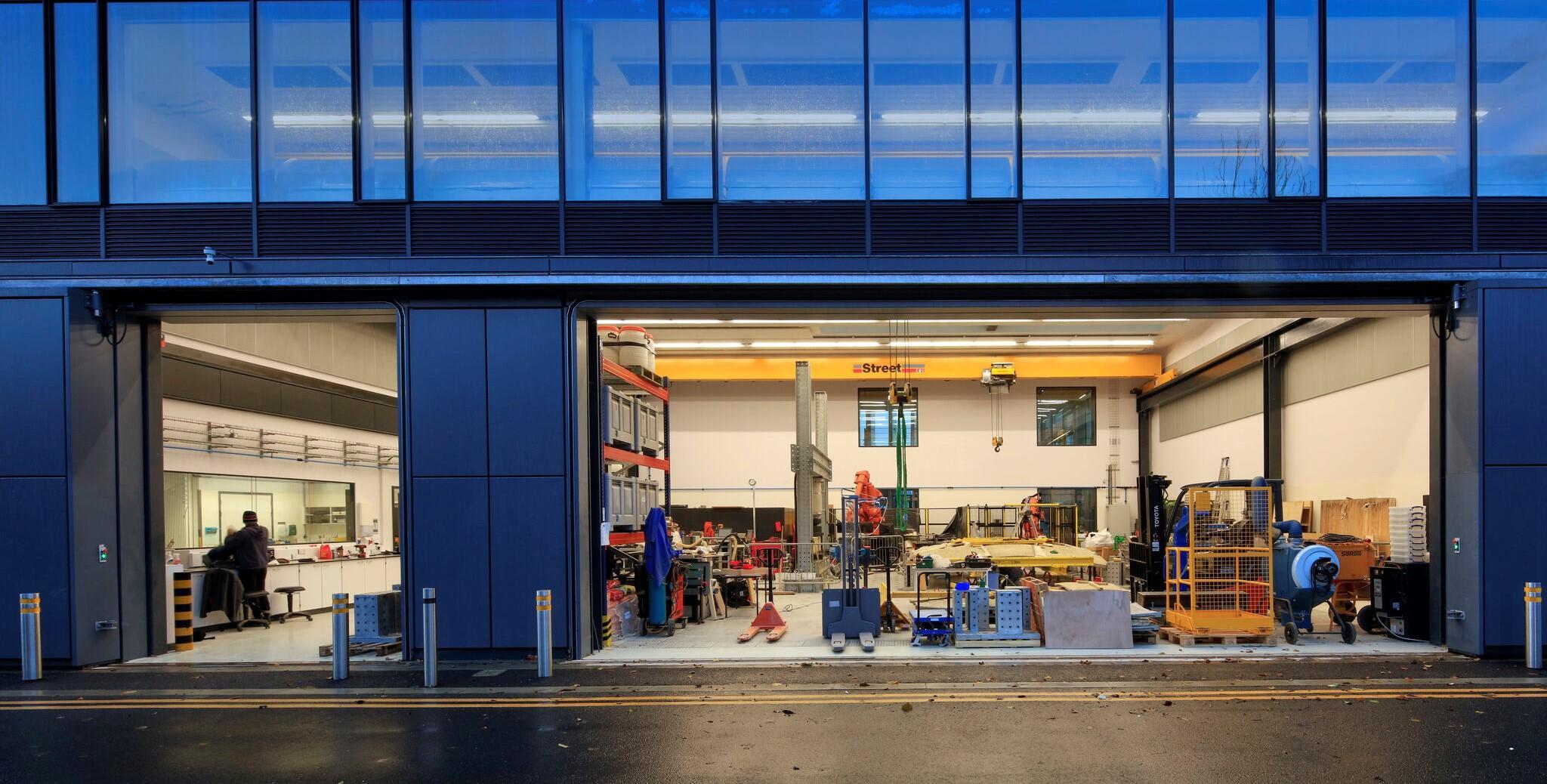
The Structures Group is based in the Civil Engineering Building which houses the UKCRIC National Research Facility for Infrastructure Sensing (NRFIS), a state-of-the-art research facility containing extensive facilities for laboratory testing, centrifuge modelling, and numerical analysis across the full range of civil engineering disciplines.
The Structures Laboratories include:
Advanced Structures Laboratory
The Advanced Structures Laboratory focuses on lightweight structural concepts demonstrating deployable and shape-changing applications. The facilities allow for work with metal, composite and various thermoplastic materials, and manufacturing and testing small-scale proof-of-concept structures to confirm solutions from nonlinear theoretical modelling and computational simulation.
Structural Materials Laboratory
Minimising the embodied energy of buildings and infrastructure is key component to achieving global emissions reductions targets. The Structural Materials Laboratory aims to transform construction through new methodologies for design, manufacture, assembly, use, reuse, and deconstruction. The laboratory is used to test ideas, from the digital to the physical, which will support a change in culture in design to make minimal embodied energy structures the preferred outcome on all construction projects. We are developing robotic construction methods, digital imaging and scanning techniques and their associated control systems.
Structures Laboratory
The Structures Laboratory and support space underpins all of the experimental research conducted across the Civil Engineering Division. Dedicated equipment aligns with the need for a well-founded central workshop with local fabrication facilities for complex experimental test rigs and components and for multi-material specimen preparation, advanced measurement and data acquisition capabilities, world-leading small and large scale experimental testing, novel measurement systems, and the movement of specimens and materials throughout the building.
Computational Structures Mechanics Laboratory
The Computational Structures Mechanics Laboratory provides facilities to perform computational modelling and analysis of lightweight structures originating from a wide range of applications, including structural engineering, aerospace and marine engineering. Specific areas of expertise include advanced discretization methods for integrated design of solids and structural components, computational fluid-structure interaction and mechanical modelling and computational analysis of large-scale structural membranes.
Material Testing and Characterisation Laboratory
The Material Testing and Characterisation Laboratory provides facilities for testing a multitude of different building materials under static and dynamic tensile and compressive forces at room temperature as well as elevated temperatures. The range of available universal testing machines allows testing low capacity flexural materials as well as higher strength load bearing elements.
Concrete Manufacturing and Durability Laboratories
The Concrete Manufacturing and Durability Laboratories support an integrated package of leading edge research to extend the lifetime of existing structures and characterise the long-term integrity of novel structural materials and structural systems for concrete manufacture. To fulfil these functions both conventional and state-of-the-art equipment is available.
Concrete Innovation Laboratory
The facilities provided in the Concrete Innovation Laboratory focus around the development, testing and application of technologies and materials for intelligent, sustainable and low carbon infrastructure. This includes remediation and intelligent biomimetic infrastructure materials, including concrete.
Read more about the equipment available in the laboratories and workshops cross the full range of civil engineering disciplines here.

